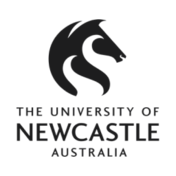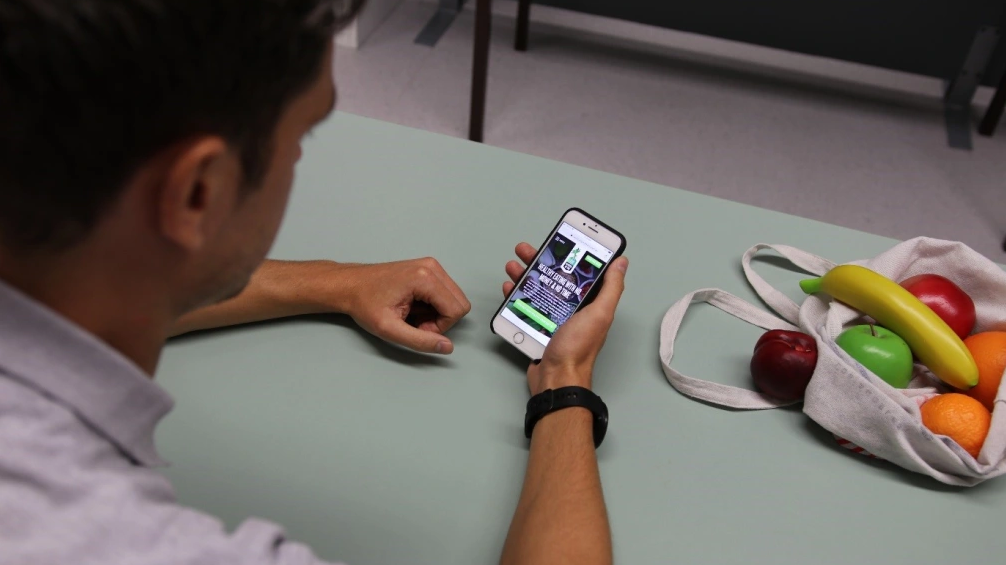The University of Newcastle

Prevention Partner
The team at University of Newcastle are helping young Aussies cut through the noise and debunk diet myths, with recipes, tools, advice and credible nutrition information to make healthy eating easy.

Funding
$500,000
Dates
2024 - 2025
Targeted nutrition through No Money, No Time
The issue
In 2021 over 1.3 million Australians were living with diabetes. Given the importance of food, nutrition and weight management for this population segment and that people with type 2 diabetes are more likely to have lower socio-economic status, developing resources that improve nutrition-related health and wellbeing, while helping avoid fad diets, is very important.
Mental health is another area where nutrition can play a positive role in improving wellbeing. In 2020–2022, 8.5 million Australians aged 16–85 years (43%) had experienced a mental disorder at some time in their life. Recent research shows that improving dietary patterns can also improve levels of both depression and wellbeing.
The University of Newcastle is committed to supporting researchers and partnering with industry in order to solve real-world problems. The University's and HMRI’s Food and Nutrition Research Program delivers evidence-based and technology-driven programs to improve nutrition and lifestyle behaviours. Their project team has extensive experience in conceptualising, developing, delivering and evaluating e-Health interventions that make an impact, helping people to improve dietary patterns.
The project
The No Money No Time platform is a one stop shop to access dietary feedback through the Healthy Eating Quiz and the Australian Eating Survey.
The University of Newcastle is collaborating with key community partners in the diabetes and mental health sectors to optimise client and community nutrition-related health and wellbeing.
Together with headspace, a youth mental health organisation with more than 150 centres across Australia, they will target food security and nutrition-related health and wellbeing for young people. Co-designed food budgeting resources and tools will help young people across the headspace network manage their nutrition needs.
To support nutrition needs of people living with diabetes they are working with organisations such as Western Sydney Diabetes Alliance. By designing online nutrition education models they aim to address gaps in nutrition resource needs for people living with type 2 diabetes.
Resources designed for these groups will be included on the No Money No Time website. They will develop relevant online short courses to enhance nutrition knowledge and run online nutrition challenges for community engagement.
The impact
This new phase of the No Money No Time project will provide targeted nutrition support to population segments managing mental health conditions and diabetes. They will directly engage these consumers with resources for nutrition management to help them eat better and feel better with easier food costs.
Anticipated impacts include improvement over time in nutrition scores through the Healthy Eating Quiz, increased nutrition knowledge, and dietary behaviour changes that result in positive changes in body weight and reductions in food costs.
Through delivery of targeted, accessible resources on the No Money No Time platform, individuals impacted by mental health or diabetes will be supported to eat healthier as they seek advice from trusted health experts.
Past project
No Money, No Time
Funding
$1,393,750, to date
Dates
December 2017 - May 2023
The issue
In Australia, poor dietary habits are now the modifiable risk factor accounting for the greatest proportion of our national burden of disease. 42% of females and 63% of males aged between 25-34 years of age are overweight or obese, and young people are prematurely developing preventable chronic diseases, such as, type 2 diabetes and heart disease.
In combination with other lifestyle risks such as tobacco smoking, risky drinking and lack of physical activity, unhealthy eating habits will place young people at greater risk of developing a chronic disease at an earlier age than previous generations, and in turn, will place significant strain on the healthcare system and individual wellbeing.
The University of Newcastle is committed to supporting researchers and partnering with industry in order to solve real-world problems. The University's Priority Research Centre in Physical Activity and Nutrition (PRCPAN) delivers evidence-based and technology-driven programs to improve nutrition and lifestyle behaviours. Their project team has extensive experience in conceptualising, developing, delivering and evaluating e-Health interventions that make an impact, helping people to improve dietary patterns.
The project
University of Newcastle is developing and delivering the No Money No Time program, a web-based personalised nutrition platform that helps motivate and support young Australian adults to adopt healthy eating behaviours, reducing the risk of preventable chronic diseases.
The program is achieving this by providing personalised dietary feedback and advice from trusted health experts on how to improve dietary patterns; streamlined web access to their existing evidence-based and popular dietary assessment tools - The Healthy Eating Quiz and the Australian Eating Survey - and providing personalised feedback and suggestions about how to develop and sustain healthier food habits.
Over the course of the project from 2021 to 2023 over 448,000 people visited the No Money No Time website, took the Healthy Eating Quiz or completed the Australian Eating Survey.
The impact
Adopting healthy eating habits at a young age will help prevent many chronic diseases, yet young people are the least likely to seek dietary advice from qualified professionals. Instead, they tend to rely on easy-to-access sources including media, friends and Google for nutrition information.
With the delivery of an innovative and accessible program that provides personalised nutrition assessments and feedback and regular support for young people, individuals are more likely to attempt to eat healthier as they seek advice from trusted health experts from the comfort of their own home.
The No Money No Time online platform can be found here and is a one stop shop to access dietary feedback through the Healthy Eating Quiz and the Australian Eating Survey.
Past project
SWAP-It
Funding
$499,500
Dates
December 2017 - December 2021
The issue
In Australia, obesity has overtaken tobacco as the leading cause of death and disability, representing a significant health and social burden that is costing our country $58 billion per year. Of greatest concern is the increasing obesity rates amongst children, with 27% of children now classified as obese or overweight. On the basis of existing trends in child obesity, the life expectancy of children today will fall by two years by the time they reach the age of 20.
Obesity can be mentally and physically tough on children, as it has the potential to lead to higher risks of premature death, chronic disease and mental health issues, such as, low self-perception, and increased depression and anxiety.
135,000 lunchboxes are packed for primary school children every day in the Hunter New England region. Currently, these lunchboxes contain about 270,000 items of junk food. As the school lunchbox contains one third of a child's daily intake, there is a great opportunity to reduce the risk factors for chronic ill health by improving food consumed at school.
University of Newcastle researchers at the Hunter New England Population Research Group (HNEPHRG) seek to improve the health of populations through the development, evaluation and implementation of innovative services and programs. One of their flagship initiatives, delivered in collaboration with the Hunter New England Local Health District, is the Good for Kids, Good for Life program designed to support early childhood education and care services, schools and parents to promote and improve healthy eating and physical activity habits of children with the ultimate aim of decreasing childhood overweight and obesity.
The project
We were pleased to provide a three-year grant to the University of Newcastle through our prevention focused Multi-Year Partnership program to develop the SWAP-It program that was delivered in collaboration with leading school-home communication app, Skoolbag.
Working with 150 Hunter New England schools, the SWAP-It program promoted the benefits of packing a healthy lunchbox to parents and carers of primary school aged children, encouraging them to SWAP in healthy foods and SWAP out unhealthy foods in the lunch box, every day.
Through the Skoolbag app, parents and carers can access information, resources and support relevant to achieving a healthy lunchbox. The program also utilises behaviour change techniques known to improve health behaviours such as prompts and reminders, goal setting, monitoring and reinforcement.
The impact
Implementing a widely accessible prevention program that prevents excessive weight gain from occurring in the first place is recommended as one of the most cost effective approaches to improving community health and wellbeing.
SWAP-It provided an easily accessible forum to engage parents and carers in a conversation about the benefits of a healthy lunchbox for their children.
This program was progressively rolled out to 165 schools over four years and its impact was rigorously evaluated via a randomised controlled trial. The study also monitored the level of reach, uptake and engagement by schools and parents and continuously refined based on research findings.
With this intervention reaching over 34,000 school children it has improved the nutritional content of school lunchboxes with a reduction of 117 kilojoules according to an evaluation study. Improving our habits towards the simple task of packing a lunchbox can have a far-reaching impact on children and families in Australia - improving nutrition, reducing excessive energy intake and unhealthy weight gain, limiting the risk of developing chronic disease in the future, as well as improving children's ability to learn and thrive.
Visit Good For Kids Good For Life for more info.
Looking to learn more about the University of Newcastle?
Check out the University of Newcastle's website to find out more.